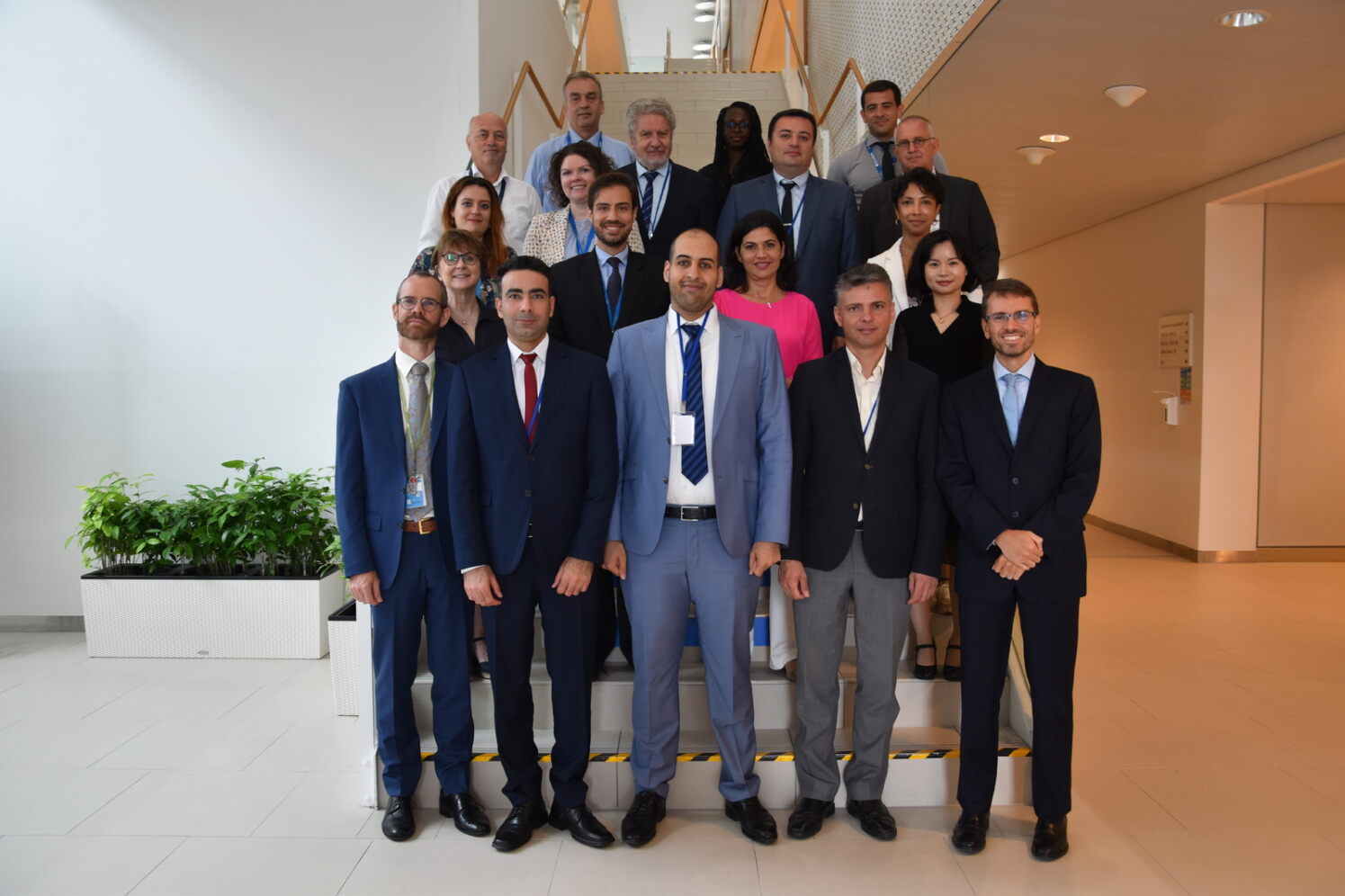With support from the IAEA Platform on Small Modular Reactors (SMRs) and their Applications, Jordan is making strides towards the introduction of nuclear power to produce both electricity and drinking water. Jordan recently benefited from an IAEA expert mission on SMRs for electricity and potable water production, after previously hosting an IAEA workshop on nuclear desalination.
Jordan, 75 per cent of which is covered by desert, has scarce water resources-and demand is rising. Powered by an SMR, Jordan's envisaged desalinisation plant would produce fresh water from the Red Sea for delivery to the 4 million residents of Amman, the fast-growing capital.
The expert review mission, held at the Agency's Vienna headquarters in August 2023, comprised 18 IAEA and three external experts who evaluated Jordan's studies to support decision making on deploying SMRs. Areas covered by the review included nuclear power technology and safety, siting and licensing, nuclear desalination, nuclear law and stakeholder engagement, among others.
"This endeavor exemplified an Agency-wide collaborative effort that addressed all aspects of the feasibility study, providing essential guidance on IAEA services that Jordan could benefit from in enhancing the assessment and progress of our SMR project," said Khalid Khasawneh, Commissioner for Nuclear Power Reactors at the Jordan Atomic Energy Commission (JAEC).
Jordan is one of a growing number of countries that have expressed interest in SMRs. To better assist countries, IAEA Director General Rafael Mariano Grossi established the SMR Platform in 2021 to provide coordinated, Agency-wide support on all aspects of SMR development, deployment and oversight. Countries interested in requesting support can contact the SMR Platform.
"In many ways, Jordan's interest helps to explain why small modular reactors and their applications are of such intense interest around the world right now," said Mikhail Chudakov, IAEA Deputy Director General and Head of the Department of Nuclear Energy. A fraction the size of conventional reactors, "SMRs offer not only lower upfront costs, but greater flexibility for a variety of users and applications and are set to play an important role in helping to ensure energy security as well as supporting the clean energy transition," Chudakov said.
SMRs' variable output and flexibility makes them good partners for intermittent renewables, as well as non-electrical applications such as desalination, process heat for industry and hydrogen production. Crucially for Jordan, some SMR designs do not use water for cooling, unlike conventional reactors.
Per capita, Jordan has some of the smallest available water resources in the world. The country has a relatively young demographic, and the pressure on its water resources has been exacerbated in recent decades by an influx of refugees. The proposed long term solution is the desalinisation of sea and brackish water - a technique used in similar situations elsewhere in the world.
Jordan is considering using an SMR to provide the electricity to operate the reverse osmosis desalination plant as well as to pump an estimated 300 million cubic meters of drinking water each year from the Red Sea coast to Amman, about 400 kilometres away and 700 meters above sea level. The decarbonized and continuous supply of electricity needed for such tasks highlight how nuclear energy can be one of the most effective solutions to the challenge facing Jordan, one of the first countries considering using a nuclear reactor exclusively for desalination needs, according to the IAEA's Francesco Ganda, who led the expert mission.
The mission reviewed whether reports submitted by JAEC include all the necessary information to support the decision making for deploying an SMR for power generation and desalination. It also suggested areas where the work could be expanded or improved. The mission followed an IAEA workshop last year in Amman, which explored the technologies and requirements for nuclear desalination.
"Both this expert mission and the workshop are prime examples of the kind of support that the IAEA can provide to countries through the SMR Platform," said Dohee Hahn, Coordinator of the IAEA SMR Platform. "In particular, newcomer countries looking to add nuclear power to their energy mix stand to benefit from the full range of Agency services accessible through the SMR Platform."
The expert mission, which found Jordan's reports provide a good basis for a feasibility study, also had suggestions for further development. These included conducting a study on the selection of the nuclear unit size while taking into account the need to strengthen electrical connections to the nodal points of the grid and to neighbouring countries; and exploring potential alternative fuel suppliers.
"The IAEA support for Jordan's nuclear program, particularly the SMR project, is highly valued and plays a pivotal role in enhancing our capabilities and advancing our endeavors," Khasawneh said. "We eagerly anticipate continued collaboration with the IAEA across all aspects of the peaceful uses of nuclear energy."

Members of the IAEA expert mission team and counterparts from Jordan at the IAEA in Vienna in August 2023. (Photo: IAEA)






